
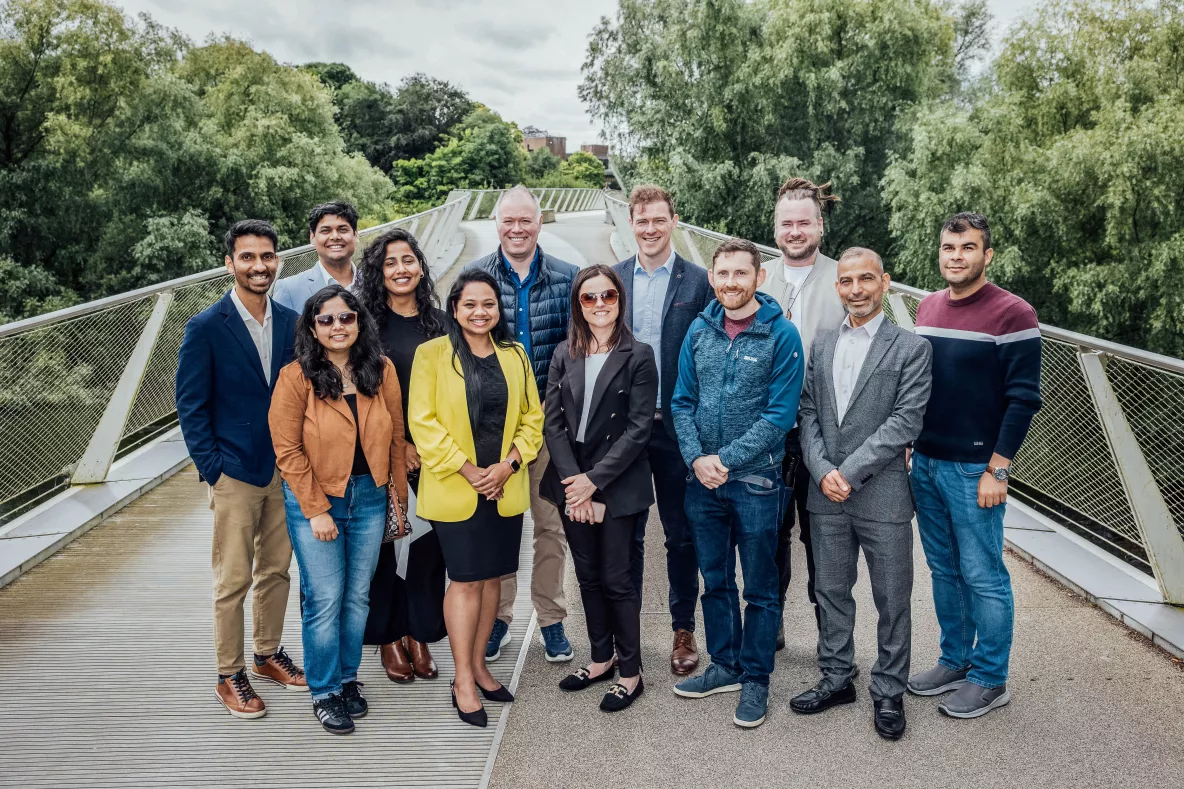
An award ceremony held at the University of Limerick has recognised the contribution of seven international postdoctoral researchers to smart manufacturing.
The researchers were part of the Marie Skłodowska-Curie Actions (MSCA) Smart 4.0 programme at the Confirm Centre, an SFI-funded research centre in the Faculty of Science and Engineering at UL devoted to creating leaders in smart manufacturing. MSCA aims to promote excellence in research, foster innovation, and enhance the mobility and skills of researchers.
The SMART4.0 programme equipped the fellows with expertise in technology like the Internet of Things (IoT), artificial intelligence (AI), and advanced manufacturing processes. These skills will allow them to innovate in fields such as robotics, cyber-physical systems, and data analytics, enhancing efficiency and sustainability in manufacturing.
Each award recipient completed a two-year Fellowship with an industry placement lasting at least three months, allowing them to bridge the gap between academic research and practical application.
James Ryan, 3D Technology Ltd, Galway was the industry supervisor for Dr Mohamad Alsaad ‘We are delighted to have participated in the SMART 4.0 program as an industry partner and collaborating closely with Mohammad. We are excited about the potential for similar opportunities in the future’.
Congratulating the fellows on their achievement, Dr Sinead Mellett SMART4.0 Programme Manager said: "The success of the SMART4.0 programme has been truly remarkable, largely due to the dedication and brilliance of our fellows. Their three-month industry placements have not only provided invaluable real-world experience but also fostered strong industry-academia collaborations. We are incredibly proud of the contributions our fellows have made towards advancing smart manufacturing and their role in driving Industry 4.0 innovations forward."
The SMART4.0 programme promoted Women in STEM (Science, Technology, Engineering and Mathematics) with 30% of its graduates being female. The programme has graduated 16 SMART4.0 Fellows over its lifetime.
Meet the SMART4.0 Fellows:
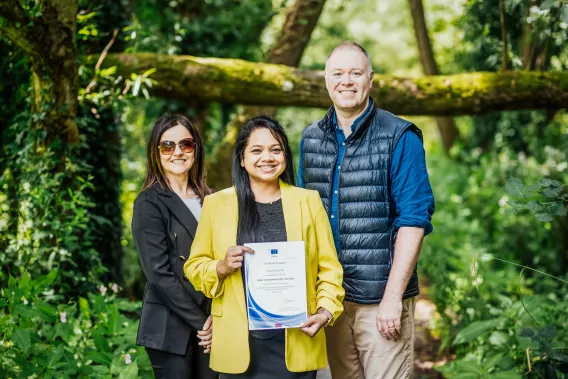
Dr. Priyanka Verma. During her SMART4.0 Fellowship, Dr Verma significantly contributed to the fields of AI and cyber security with 16 publications, half of which were specific to her MSCA project and the rest through various collaborations. Her research, spanning critical areas like federated learning, IIoT, and DDoS attack defences, has been published in reputable journals and conferences, including IEEE and Springer. Dr. Verma's active participation in notable conferences, such as Qubit 2022 and SMARTCOMP 2023, highlights her role as a speaker, session chair, and panellist. She has also been recognized with several accolades, including becoming the youngest IETE fellow and receiving the Young Researcher Award from PHDCCI, India. Following her fellowship, she joined the University of Limerick as a Research Fellow. Dr. Verma aspires to secure funding to establish an independent research lab, aiming to advance AI and cyber security research while mentoring the next generation of scientists.
Dr. Rupal Srivastava. Dr Srivastava’s tenure as a SMART 4.0 Fellow at the SFI Confirm Centre was highly productive, allowing her to undertake independent research, network internationally, and advance her career. Supported by Robotics and Drives, she developed a smart glove using Shape Memory Alloys for Cobotic applications, which she presented in numerous talks and interviews. Between June 2021 and September 2023, she supervised PhD and Masters students, led summer internships, published 10 papers, delivered 7 invited talks, and championed around 20 EPE activities. Additionally, she taught part-time at SETU Waterford, secured a PhD student internship, and participated in various ideation programs. Since September 2023, Dr. Srivastava has been an Assistant Lecturer and Programme Leader for the Masters in Innovative Technology at SETU Waterford. Her future goals include securing research grants, building industry collaborations, and continuing her work in Smart Wearables and Smart Materials while enhancing her teaching methods. She credits the Confirm Centre for its pivotal role in her development as an international researcher.
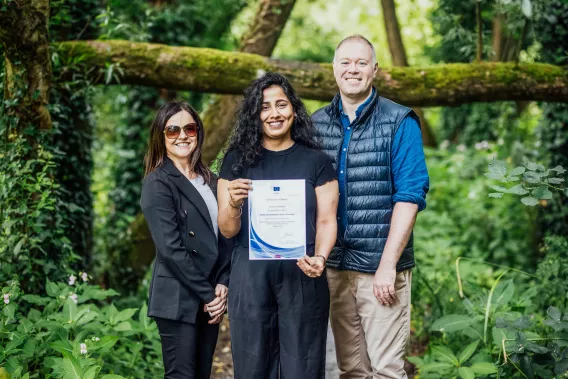
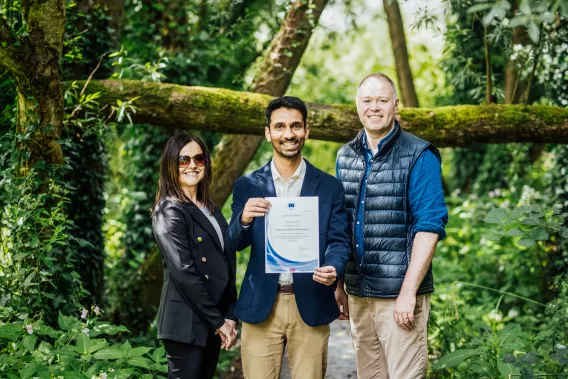
Dr Sourabh Bharti. Dr Bharti was a SMART4.0 fellow during 2020-2022, based in Nimbus Research Centre, MTU, Cork. During his fellowship, he contributed to the field of federated learning and its applications in manufacturing domain by developing privacy-aware machine learning model sharing techniques across manufacturing sites/organizations. His work was published in journals and conferences of repute in the area of Internet of Things and Cyber-physical systems. In 2021, he received the EPE Champion award from the CONFIRM Centre. After completing his fellowship, he briefly worked as a Senior Research Scientist at DELL Technologies.
Currently he is a Research Fellow at Nimbus Research Centre, MTU, leading a large-scale national project funded by SEAI, which extends his work from the SMART 4.0 fellowship. Recently, his proposal has been approved for platform funding under CONNECT-SFI Research Centre and he is actively involved in strategic development of the Nimbus Research Centre through NE-NC funding. He is actively engaged in several Horizon Europe proposals to broaden the impact of his ongoing research activities.
Dr. Mohamad Alsaadi. Dr Alsaadi is a SMART4.0 Marie Skłodowska-Curie Action (MSCA) Post-Doctoral Research Fellow at the CONFIRM Centre, University of Limerick, specializing in enhancing the mechanical and fracture properties of 3D printed shape memory nanocomposites under harsh conditions. Supervised by Assistant Professor Eoin P. Hinchy, Professor Conor T. McCarthy, and Declan M. Devine, and partnered with engineer James Wall, Dr. Alsaadi's research focuses on developing vat photopolymerized 3D printed resins with noncovalent functionalized graphene nanoplatelets to explore their thermal, mechanical, and shape memory behaviours. His work extends to evaluating these properties using various techniques and applications, including soft robotics and aerospace. During his industrial secondment at Advanced 3D Technology Ltd., he utilised the DLP Figure 4® 3D printer to investigate the effects of aging and functionalised nanoplatelets on 4D printed nanocomposites. Dr. Alsaadi's achievements include securing the SFI Industry RD&I Fellowship for the GreenCompos project and the TUS RISE Postgraduate Scholarship for his MSc research project. He is involved in multiple European collaborations and programs and has completed several professional training courses. His dissemination activities include seven journal publications, numerous conference presentations, and participation in various outreach and educational public engagement activities. Currently, he is a funded investigator in the CONNECT-SFI Research Centre and actively engages in Horizon Europe proposals to expand his research impact.
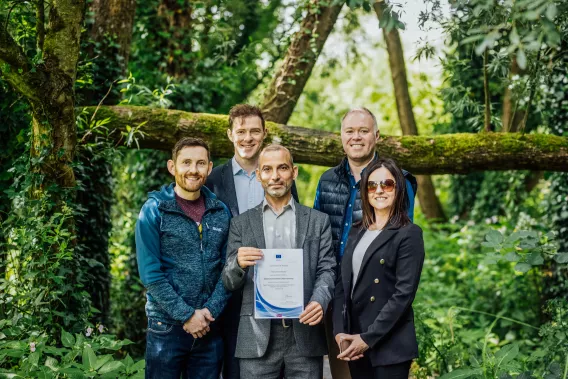
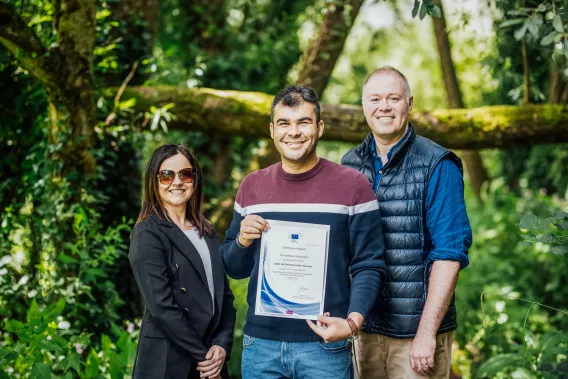
Dr. Gholamhosein Moloudian. Dr Moloudian is a researcher at the Micro & Nano Systems Centre, Wireless Sensor Network Group, Tyndall National Institute, Ireland. He earned his associate's degree in Electronics from Technical and Vocational University of Yasouj (First-Class Hons), followed by a B.Sc. in Electronic Engineering from the Higher Education Center of Shiraz, an M.Sc. in Electronic Engineering from Islamic Azad University (IAU) of Bushehr (First-Class Hons), and a Ph.D. in Electronic Engineering from IAU, Arak Branch, all with highest honors, completed in 2008, 2010, 2012, and 2018, respectively. From January 2016 to September 2020, he served as a researcher and lecturer in the Electrical Engineering departments at Salman Farsi University of Kazerun and IAU Kazerun Branch. Dr. Moloudian's research interests encompass RF/microwave circuit design, RFID, smart sensors, microstrip antennas, photonic devices, MEMS, Industry 4.0 technologies, and biomedical sensors and antennas. His expertise includes the design and fabrication of RF electronic devices, RFID sensor technology, implantable antennas and sensors for biomedical applications, and high-frequency electronic devices for wireless applications such as antennas, sensors, filters, diplexers, and power dividers. He has been successful in receiving funding for two of his proposals by the SFI-Insight and SFI-CONNECT centres, where is now working as Senior Researcher at the Tyndall National Institute.
Postal Address: Science & Engineering Faculty Office, Lonsdale Building, 1st Floor, University of Limerick, Limerick, Ireland
Email: scieng@ul.ie
Phone: +353 (0)61 202109 or +353 (0)61 202642